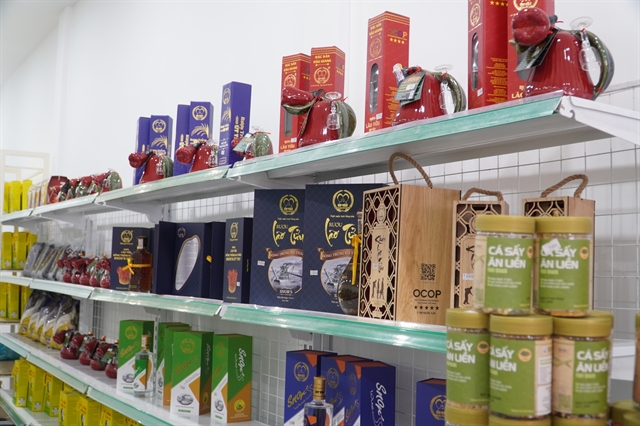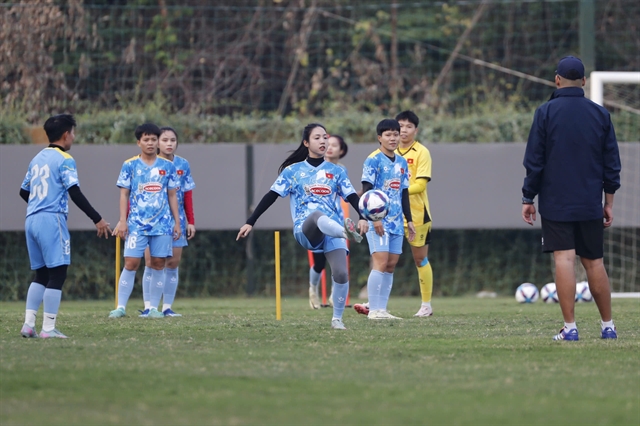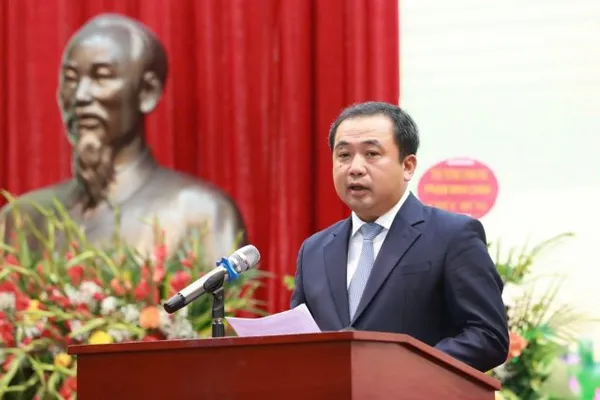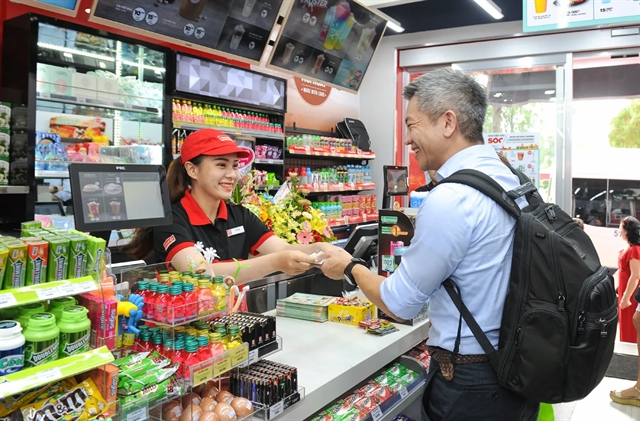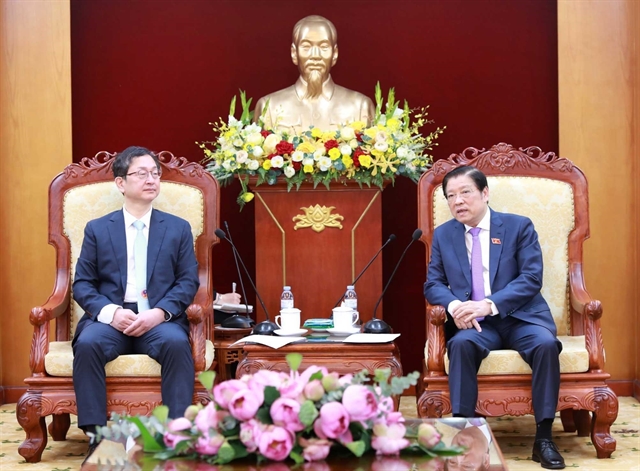 Politics & Law
Politics & Law
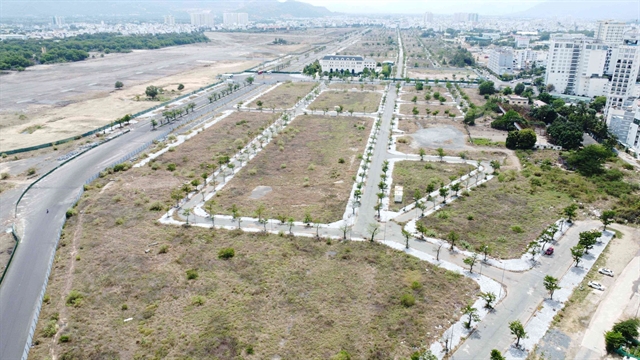
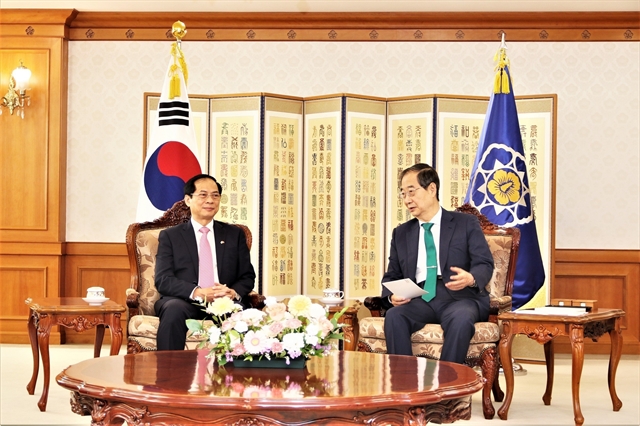 |
| Vietnamese Minister of Foreign Affairs Bùi Thanh Sơn and Prime Minister of the Republic of Korea (RoK) Han Duck-soo meet on May 31. — VNA/VNS Photo Nguyễn Trường Giang |
SEOUL — Vietnamese Minister of Foreign Affairs Bùi Thanh Sơn on May 31 met with Prime Minister of the Republic of Korea (RoK) Han Duck-soo as part of the former’s official visit to the East Asian country.
Han noted his belief that Sơn’s visit will be an important basis to promote the comprehensive strategic partnership between the two countries.
The PM also expressed his good sentiments towards Việt Nam, and congratulated the country on its remarkable socio-economic achievements, and increasing position and role in the region.
The Korean Government attaches importance to the bilateral relationship and considers Việt Nam a key partner in its foreign policy in the region, he affirmed.
The two sides shared the view on the need to strengthen cooperation, maintain regular high-level exchanges and contacts, effectively implement cooperation mechanisms and dialogues, step up economic ties practically, enhance collaboration in culture, education, tourism and labour, and people-to-people exchange, maintain coordination at multilateral forums, and foster coordination in regional and international issues of shared concern.
Sơn also congratulated the RoK on its achievements, and affirmed that the Vietnamese Ministry of Foreign Affairs will continue the close coordination with its Korean counterpart and other competent agencies of the two countries to beef up the bilateral relations in a more practical and comprehensive manner and in the spirit of the agreement reached by the two countries’ high-ranking leaders, focusing on the implementation of the action programme to realise the comprehensive strategic partnership.
Sơn used the occasion to thank the RoK for its active cooperation with Việt Nam, helping the Southeast Asian country fulfill its role as coordinator for the ASEAN-RoK relations for 2021-2024.
He called for the RoK’s support and experience sharing in the organisation of the Partnering for Green Growth and the Global Goals 2030 (P4G) summit Việt Nam will host in 2025, as well as the East Asian country’s continued support for Việt Nam’s and ASEAN’s stance on the East Sea issue.
Việt Nam always keeps a close watch on, backs and stands ready to contribute to the process of denuclearisation on the Korean Peninsula, Sơn stressed.
The same day, Sơn held talks with his Korean counterpart Cho Tae-yeol, during which the guest emphasising Việt Nam's consistent policy of promoting bilateral cooperation, making it more substantive, comprehensive and sustainable.
He suggested the RoK keep doors open for Vietnamese goods to enter its market and assist Vietnamese firms to join global supply chains of Korean businesses more intensively, contributing to raising two-way trade to US$100 billion in 2025.
The minister also called on the country to improve the quality of and expand investments in Việt Nam, particularly in semiconductors, digital transformation, green transition, renewable energy and high technology; further consider providing big loans with preferential conditions for Việt Nam's key infrastructure projects and others on climate change; deepen cooperation in labour, tourism, education and people-to-people exchange; and offer more scholarships to Vietnamese students.
Cho pledged to maintain close cooperation with the Vietnamese Ministry of Foreign Affairs, covering the implementation of the above-said action programme, and suggested Việt Nam create a favourable environment for Korean investors, while intensifying supply chain cooperation in essential minerals, developing LNG power plants, and hydrogen production.
The host minister spoke highly of Việt Nam’s role as coordinator of the ASEAN-RoK relations for 2021-2024.
Both highlighted the importance of the East Sea (internationally known as the South China Sea) to peace, security and stability in the region, and agreed to continue supporting the resolution of disputes in the waters by peaceful means in accordance with international law, including the 1982 United Nations Convention on the Law of the Sea (UNCLOS). — VNS

